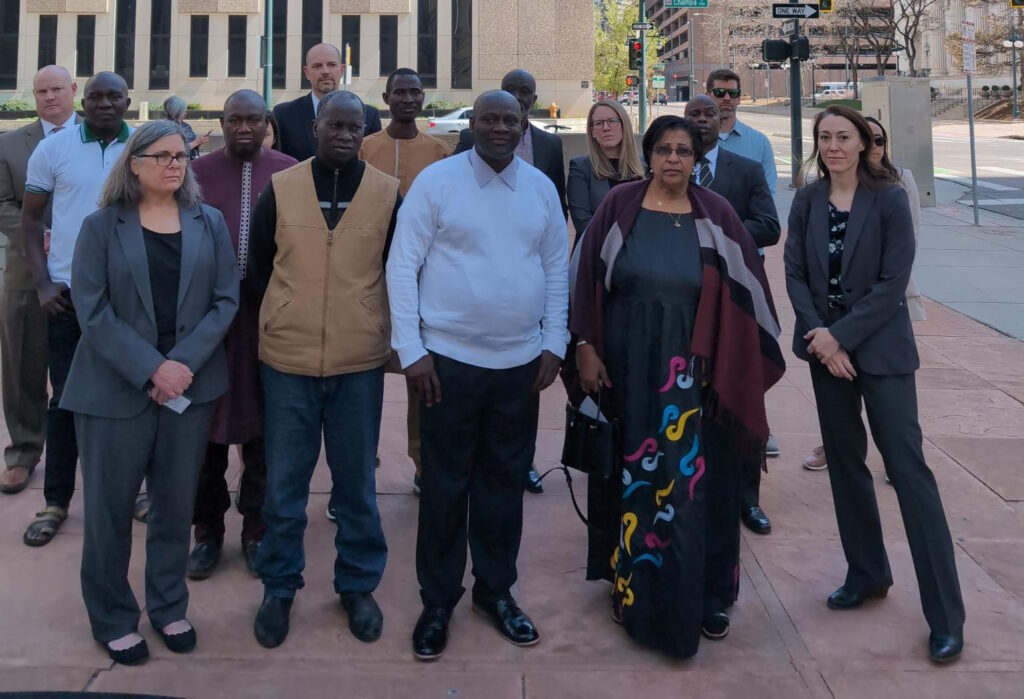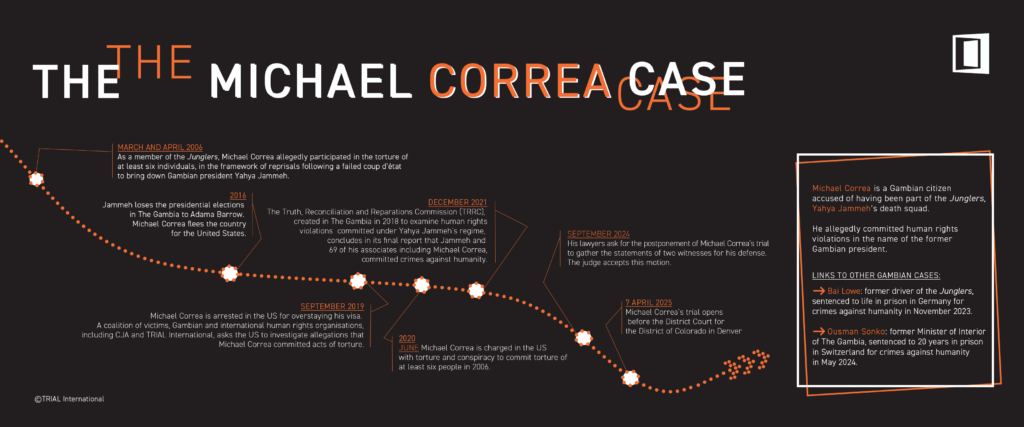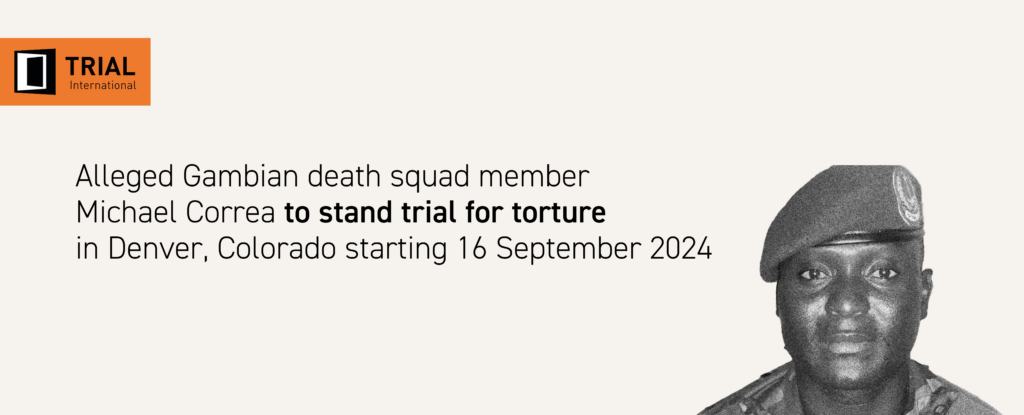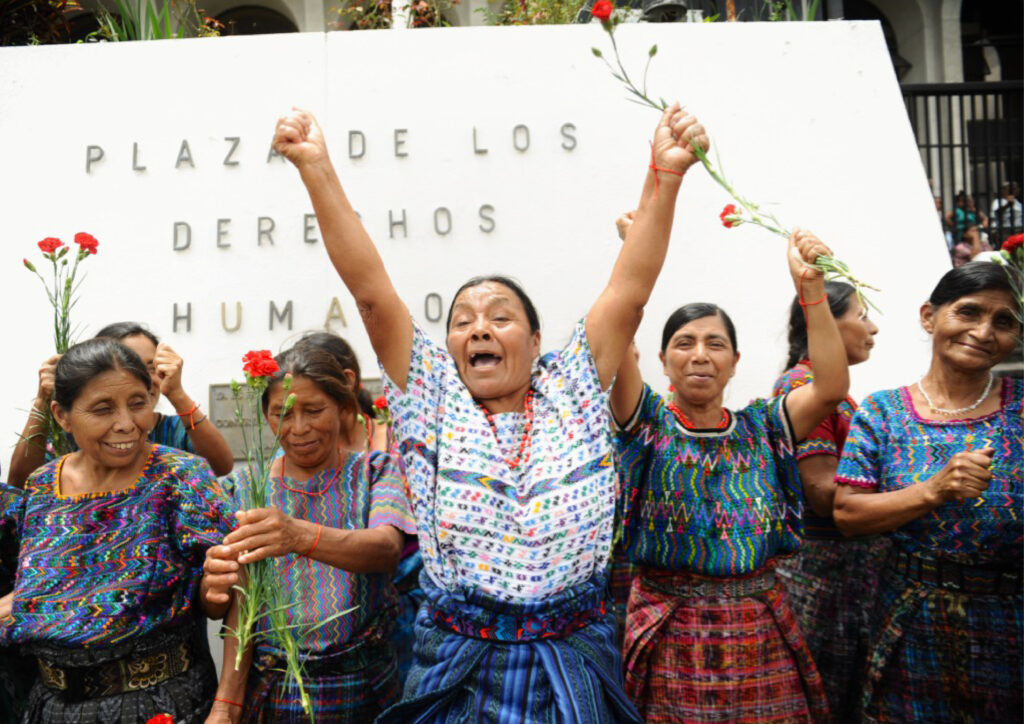Enforced Disappearance of Rajendra Prasad Dhakal in January 1999
The case
In January 2012, TRIAL submitted an individual communication to the United Nations Human Rights Committee regarding the enforced disappearance of Mr. Rajendra Prasad Dhakal in January 1999. In this case TRIAL also represents the victim’s wife, Mrs. Bimala Dhakal, the victim’s brother, Mr. Rabindra Dhakal and the victim’s elder daughter, Ms. Manjima Dhakal.
Mr. Rajendra Dhakal is a lawyer and human rights defender. He used to be the Chairman of the Gorkha district branch of the Forum for the Protection of Human Rights (FOPHUR), a national human rights organization.
After being illegally arrested in March 1996 and ill-treated by the Nepalese police, on 8 January 1999 Mr. Rajendra Dhakal was again arbitrarily deprived of his liberty by police forces and forcibly disappeared. On that day Mr. Rajendra Dhakal was attending a closed-door political awareness programme at Jamdi village, in Tanahun District, when he was approached by a patrolling police team and arrested. At the same time, two primary school teachers were also arrested and the three of them were taken to the Belchautara Area Police Office. On arrival to the Area Police Office, the two teachers were separated from Mr. Rajendra Dhakal, who was put in solitary confinement. Mr. Rajendra Dhakal was seen for the last time by the two teachers, who were both eventually released two days later. The whereabouts of Mr. Rajendra Dhakal remain unknown since.
His relatives took numerous steps in order to find him. In the days following the arrest, Mr. Rabindra Dhakal searched for his brother at the District Police Office in Tanahun, District Police Office in Newalparasi, District Police Office in Pokhara and the Armed Police Battalion in Pokhara. In each of these places, the officers in charge denied having arrested his brother. At the District Police Office in Gorkha however, the officers stated that Mr. Rajendra Dhakal was under their custody but that Mr. Rabindra Dhakal could not visit him.
On 21 January 1999 Mr. Rabindra Dhakal lodged a writ of habeas corpus on behalf of Mr. Rajendra Dhakal before the Nepalese Supreme Court. The proceedings before the Supreme Court did not reveal any additional information on Mr. Rajendra Dhakal’s fate. The affidavits of the two teachers who were arrested and held together with Mr. Rajendra Dhakal in January 1999, were presented at the request of the court in December 1999, confirming that the arrest and detention of Mr. Rajendra Dhakal had indeed taken place on 8 January 1999.
On 28 August 2006 the Supreme Court decided to establish a Detainee Investigation Task Force (DITF) to inquire into various cases of enforced disappearances, including Mr. Rajendra Dhakal’s. The DITF report conclusively stated that “Mr. Rajendra Dhakal was arrested on 8 January 1999 by a police team comprised of 10 to 12 policemen under the command of erstwhile Police Inspector K.B.R. (name omitted) of Area Police Office, Bel Chautara, Tanahun” and “he was disappeared on the same date”.
On 1 June 2007 the Supreme Court finally ruled on the habeas corpus petition of 83 disappeared people, among which Mr. Rajendra Dhakal. The Court endorsed the judicial findings of the DITF about the conditions of arrest and the status of Mr. Rajendra Dhakal as a disappeared person and ordered the Government to enact domestic legislative measures defining and criminalizing enforced disappearances, prosecute the officials found responsible for these crimes and provide a substantial compensation to victims and their families.
Apart from a minimal interim compensation of 150,000 NRs received (approximately 1.500 euros) on 3 August 2007 by Mr. Rajendra Dhakal’s wife, the final decision by the Supreme Court has fallen on deaf ears as it has not been acted upon or implemented to date by the national authorities in any meaningful way.
In January 2012, TRIAL submitted an individual communication to the United Nations Human Rights Committee asking it
- to recognize that Nepal violated numerous articles of the International Covenant on Civil and Political Rights due to Mr. Dhakal’s enforced disappearance, the ongoing failure of Nepalese authorities to conduct an effective investigation and prosecution of the crime and the ensuing suffering endured by Mr. Dhakal’s spouse, brother and elder daughter owing to the disappearance of their loved one;
- to require a thorough and independent investigation into the arbitrary deprivation of liberty and enforced disappearance of Mr. Rajendra Dhakal and in the event of his death, the localization, exhumation, identification and restitution of his mortal remains to the family;
- to request Nepal to prosecute the people responsible for Mr. Dhakal’s disappearance;
- to require Nepal to immediately suspend from office all army officials against whom there is prima facie evidence that they were involved in the enforced disappearance of Mr. Rajendra Dhakal pending the outcome of investigations against them;
- to request Nepal to ensure that the authors obtain prompt, fair and adequate compensation covering both material and moral damages and that measures of reparation adopted in their favor incorporate measures aiming at providing restitution, rehabilitation, satisfaction (including restoration of dignity and reputation) and guarantees of non-repetition.
General context
The enforced disappearance of Mr. Dhakal is part of the context of internal armed conflict which Nepal has experienced between February 1996, when the Communist Party of Nepal (Maoist) overtly declared war against the official governmental authorities of Nepal, and November 2006, when the different parties to the conflict signed the Comprehensive Peace Agreement sanctioning a formal end to hostilities.
The decade long armed conflict from 1996-2006 caused not only severe economic and social damages in Nepal but also put the country’s name in the list of the top human rights violators worldwide. The recourse to enforced disappearances, torture, summary executions and arbitrary detentions by State agents and Maoists was generalized during this period. Reportedly thousands of enforced disappearances occurred through the practice of unofficial detention by the security forces.
The Decision
On 17 March 2017 the UN Human Rights Committee issued a decision on the case, finding Nepal responsible for the violation of several provisions of the International Covenant on Civil and Political Rights, including the right to life, the prohibition of torture, the right to personal liberty and the right to recognition as a person before the law in respect of Mr. Dhakal. The Committee also found that the wife and the daughter of Mr. Rajendra Dhakal are victims of inhuman and degrading treatment because of the lack of information on the fate and whereabouts of their loved one and the ensuing anguish and suffering.
The Committee requested Nepal to:
- Conduct a thorough investigation into the disappearance of Mr. Dhakal and, in the case of his death, locate his remains and hand them over to his family;
- Prosecute, try and punish those responsible for the crimes committed against Mr. Dhakal;
- Provide the wife and the daughter of Mr. Dhakal with adequate compensation and measures of satisfaction;
- Provide the wife and the daughter of Mr. Dhakal with the necessary psychological rehabilitation and medical care;
- Prevent similar violations in the future and ensure that domestic legislation allows for the criminal prosecution of those responsible for torture and enforced disappearance; and any enforced disappearance gives rise to a prompt and thorough investigation.
Nepal has now 180 days to inform the Committee about the measures taken to implement this decision.










